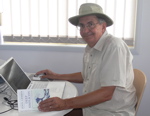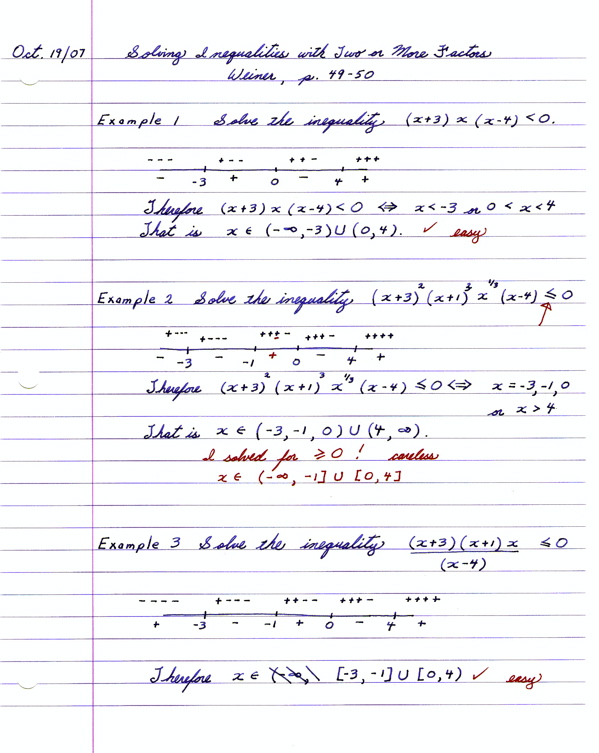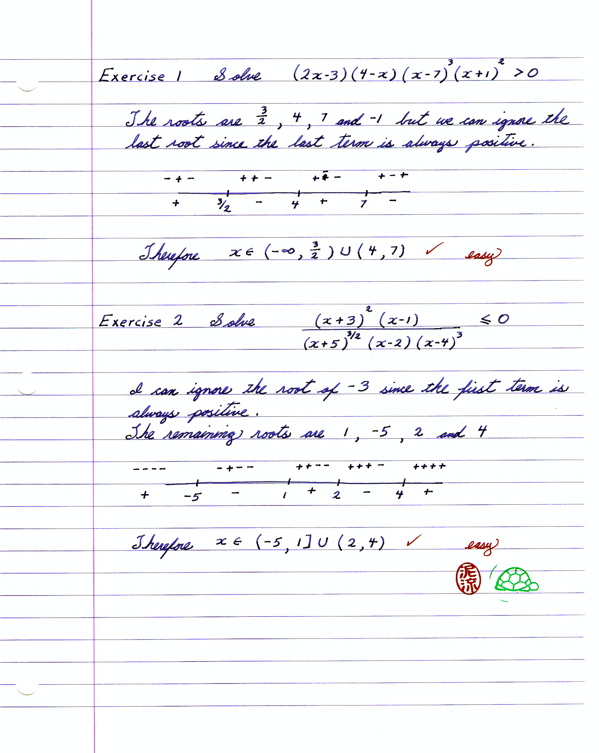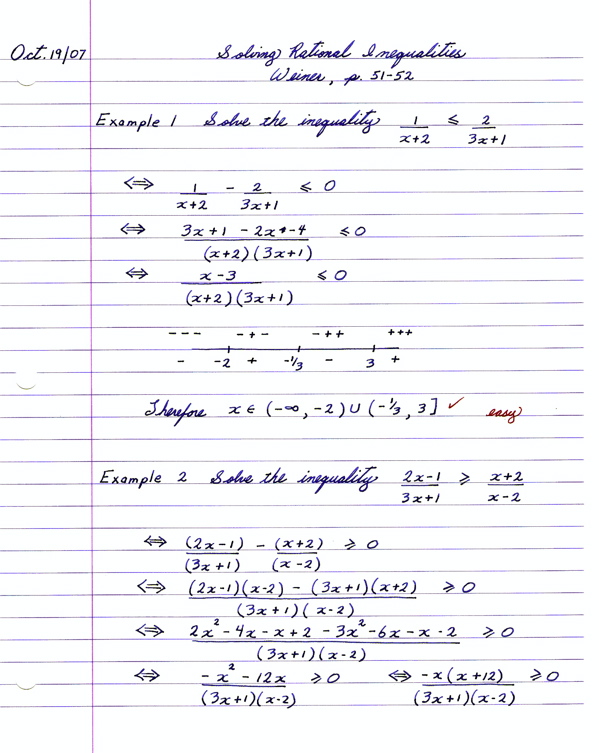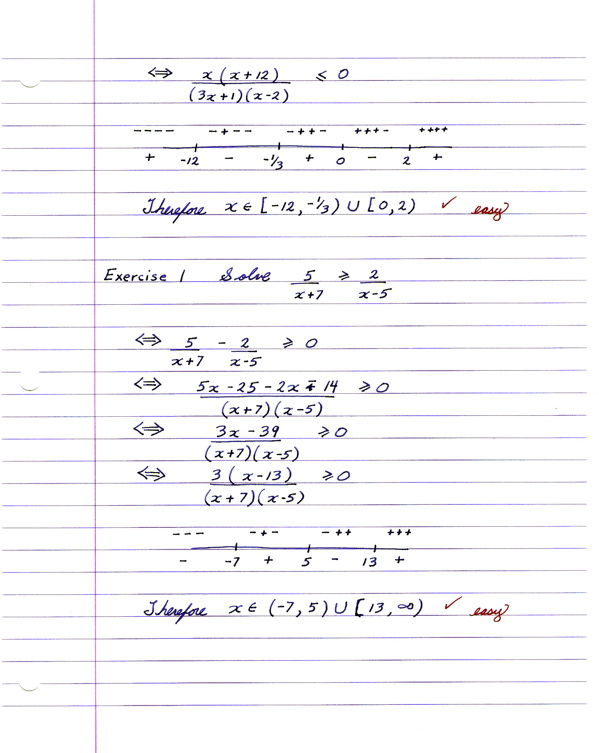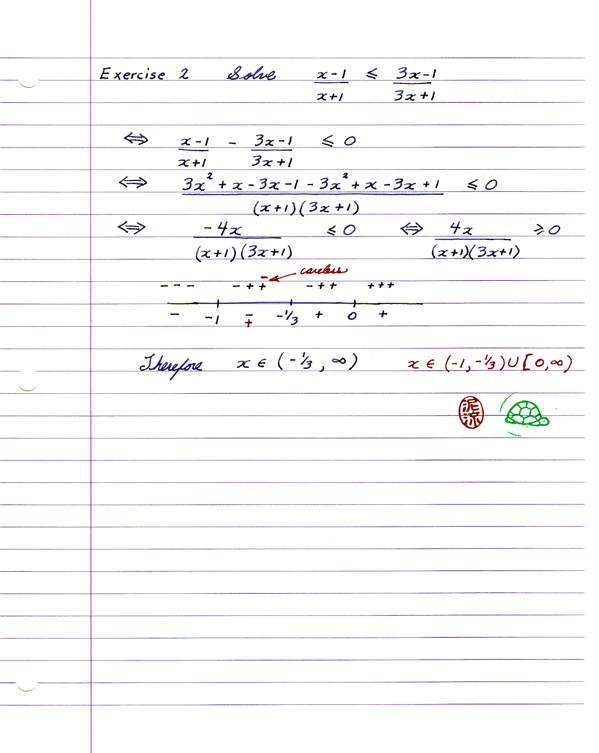Friday October 19, 2007 8:30 am Lennox Head, NSW Australia
A. Morning Musings
8:30 am
We pretty have everything under control now. The carpets were cleaned, as well as they could be, yesterday. It is much nicer in the unit now.
I had another good session with mathematics this morning. My general algebraic skills are improving noticeably. I am able to look at various expressions and have a good idea of what I should do next.
| Immediate |
Description |
Time |
| Mathematics |
Weiner exercises: "Solving Rational Inequalities" |
1 hr |
| Literature |
The Nelson Introduction to Literature |
1 hr |
C. Actual Learning Activities
8:30 am
Mathematics 63
October 19, 2007
4:45 PM
I have read the introduction to the second section of "The Nelson Introduction to Literature". This is about The Essay. I also have two books of essays, one by Peter Singer on the ethics of globalization, called "One World". The other is by A. C. Grayling, "The Meaning of Things" and contains about 50 essays on various topics that are of interest today.
This is a form that I would like to practice. One approach would be to devote one hour each day to writing an essay on a topic of current interest to me. The Nelson book notes that an essay should have two elements, voice and tone. Voice is about how the author wishes to be perceived by the reader; tone is about how the author views the topic. An essay should have one central theme, called its thesis which is presented by a blend of voice and tone. The thesis should be supported by a variety of methods:
- narration (story)
- description
- comparison/contrast
- classification.
"Much of the delight of an essay lies in its detail. ... The turn of phrase, the vivid images, ... the examples provided." [p. 193]
Here is a prototypical first paragraph.
Today I watched the news and heard about an assassination attempt in Pakistan. I want to understand, at least better than I do at the moment, the context within which such an event is considered to be an appropriate action for a particular group of people to plan and then carry out.
There are three main sources of information:
- the news media (television, radio)
- newspapers
- the internet
- wikipedia
- a few western news sites (particularly the BBC, NY Times, and CNN)
- a few Asian news sites
- google for a few blogs.
The next step is to identify the main points of information as well as particular viewpoints from differing groups.
Having done this, I then want to provide a personal reaction to the information that I have gathered.
